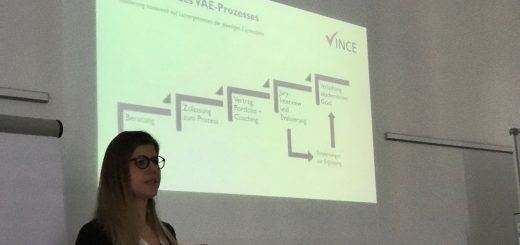Learning Outcomes – Chance or Threat to Education?
I am working a lot with learning outcomes and I like working with them. They promote transparency, orientation in the learning process, meta-cognitive thinking and much more. But there is also a downside about learning outcomes and I really had the urge to write something about this downside in my blog.

Learning Outcomes: Chance or Threat for Education? (Pixabay CCO by Rilson S. Avelar)
At the moment, learning outcomes are not widely implemented in Austria yet – they may be written, because writing it is required at many educational institutions, but most teachers do not really apply them actively in teaching and learning. Also, there is no unified approach of how to write and and it seems to me, that most learning outcomes are not very transparent or aligned with learning strategies or assessment methods. They are rather “just for the show”. So at the moment, learning outcomes are rather like this little cute looking creature in the comic above: Still small, not really influencing teaching and learning too much at the moment. But what happens, if we “feed” this little creature? Will it grow up to eat up its creator? Will it have negative influences on teaching and learning?
I am currently reading the European Handbook “Defining, writing and applying learning outcomes” (CEDEFOP, 2017) and I was somehow quite pleased about the content. It was openly spoken about criticism about the learning outcomes approach (see p.38-41). Of course learning outcomes have great potential, but it really depends on HOW to write and use them. So let’s summarize the threats:
Criticism on the learning approach in general
Learning outcomes are “dumbing down” education
Learning outcomes are reducing the complexity of the learning process into measurable and delimited objects (p.38). The learning process is context bound and harmed by using too detailed learning outcomes. This reminds me a lot of “teaching to the test”, an approach, which definitely harms education.
Learning outcomes as a “policy hype”
The learning outcome approach is seen by some as “embodiment of a neo-liberalist, market-driven philosophy” and “policy hype” (p.39).
Consequences for understanding and applying learning outcomes
Learning is deeply contextualised and can hardly be separated from social identity, values and relationships. Furthermore, there are types at learning, which are tacit and difficult to communicate. As a consequence learning outcomes should be rather descriptive, not prescriptive like intended learning outcomes. Learning outcomes shouldn’t be defined to rigidly, but this also risks reduced measurability. Important for the impact of learning outcomes is constructive alignment: They need to be reflected by teaching and learning practice as well as assessment tasks. They should be open-ended: It is not supposed to be a closed loop, but rather a learning cycle, like proposed by the ATS2020 learning model:

ATS2020 Learning Cycle: Intended learning outcomes are defined at the start of the learning process and reviewed at the end of it. This review influences the definition of new learning outcomes.
Formative assessment plays an important role when it comes to using learning outcomes. Through constant feedback and dialogue with peer and teachers, the learning process can be reflected, if other, maybe unintended, learning outcomes were reached and which new, individual, intended learning outcomes could be set for the future for the next learning cycle.
For ATS2020 I developed, together with my colleagues Andrea Ghoneim, Peter Baumgartner and Tina Gruber-Mücke, a pattern collection for formative feedback to support teachers in creating a learning environment, where formative feedback can emerge.
Conclusion
All in all it needs to be considered, that learning outcomes open up a lot of chances (transparency, validation of non-formal and informal learning, quality assurance of teaching and learning, autonomous learning, individual learning pathways) but they could be also be implemented in a way, which dumbs down education, reduces complex learning processes into too detailed and small entities in order to measure them, minimizing open learning and the emergence of unintended learning outcomes. The question is, which mindset relies on the learning outcomes approach and its application. We need to be aware of the threats but also the potentials and act accordingly in practice.
What do you think about learning outcomes? Do you use them in practice? Do you use them also for planning your lessons activities? Or if you are a learner: Do you use learning outcomes to steer your personal learning process?


